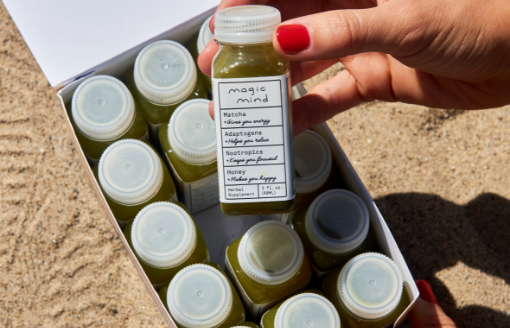
Constipation in Children: Common Causes & Natural Remedies
Constipation in children can be a frustrating and uncomfortable experience for both kids and parents. It can lead to abdominal pain, nausea, painful bowel movements, bloating and even results in a poor appetite. As a parent, you want to help your child feel their best, and one way to do that is to understand the common causes of constipation and natural remedies that can help.
What is normal?
First, it's important to understand what's normal when it comes to your child's bowel movements. Children poop at different rates and times each day, but the consistency or softness of the poop is what matters most. Using the pediatric Bristol stool scale as a guide, type 3 or 4 stools are considered normal.
What is constipation?
Constipation occurs when your child has hard, dry, or small stools and may be experiencing painful bowel movements or even skipping days without a bowel movement. Some children can have daily bowel movements but still be constipated if they are not evacuating their bowels well. This common issue if untreated can lead to cuts or anal fissures, stool withholding and in severe cases, encopresis or poop accidents.
Why is my child constipated?
Constipation can be organic or it can be functional. Organic constipation occurs due to a disease, such as celiac disease or structural problems. Only 5% of cases are due to organic constipation.
Majority of children have functional constipation that is usually caused by multiple factors including lifestyle related factors. The most common causes of functional constipation are a diet lacking adequate fibre, dehydration, withholding stool due to prior painful bowel movements and post infectious constipation. Roughly 95% of all constipation cases in children are functional.
Diet lacking in adequate fiber. The amount of fiber a child needs varies based on age. A simple guide is 5 grams +age of your child is a mount of fibre a child needs. Good sources of dietary fiber are usually fresh fruits, vegetables and whole grains. Link to fiber rich diet
In adequate fluid intake. children ages 1-3 years need approximately 4 cups of beverages per day. This increases for older kids to around 5 cups for 4-8 year olds, and 7-8 cups for older children. Fiber without adequate water/ fluid intake can make constipation worse.
Stool withholding
This is when kids try to hold their stool in rather than let it pass. This behavior is more common in young children. Toddlers usually withhold because they have had a prior painful hard stool and are scared to pass stool. Young children may withhold stool if they are too busy playing and don't want to stop an activity that they are interested in. Older children may choose to hold in their stool when they are away from home due to a dislike to use public toilets.
Post infectious constipation-
After an illness usually a stomach bug the motility( movement ) of the gastrointestinal tract and the gut microbiome are altered and this can lead to constipation. Duration of this is usually weeks but could last longer.
What happens if constipation gets worse
Abdominal pain, bloating
Nausea and poor appetite
Anal fissure- these are small cuts on the skin around the anus caused by hard large stools
Diarrhea, overflow or encopresis
More About encopresis…
Long standing untreated constipation leads to large build up of stool in the rectum ( end of the colon). Eventually more soft liquid stool escapes around this large mass of stool and comes out involuntarily and small streaks in their underwear. The child usually has no control over these accidents and it is often perceived as diarrhea or the child being lazy.
Natural remedies for constipation in kids
To help your child overcome constipation, there are several natural remedies that you can try. One effective strategy is slowly changing their diet to include more fibre-rich foods, such as fresh fruits, vegetables, and whole grains. It's also important to encourage your child to drink enough fluids, especially water, to keep their stool soft and easy to pass.
Another helpful remedy is to establish a regular bowel movement routine at home. Encourage your child to sit on the toilet for a few minutes after meals — this takes advantage of the gastrocolic reflex, which stimulates the colon to move stool into the rectum. Physical activity can also helps improve gut motility and ease constipation.
If these natural remedies don't work, over-the-counter stool softeners can be an option. For parents who prefer natural products, Eka Health's Poopease, a natural probiotic that supports digestive health, is an excellent option.
By understanding the common causes of constipation and incorporating healthy lifestyle changes into your child's daily routine, you can help your child feel better faster.


0 comments